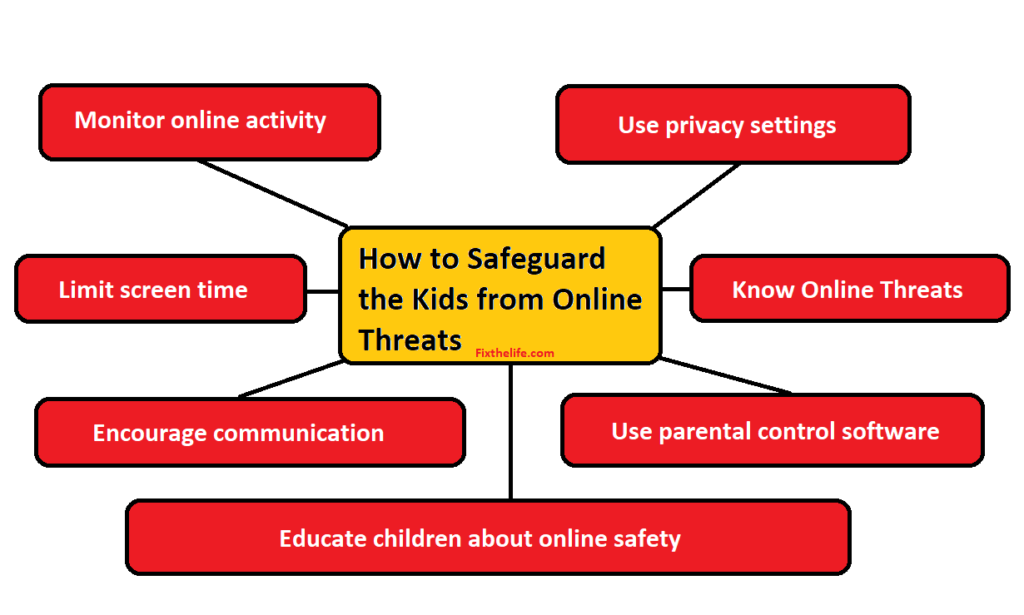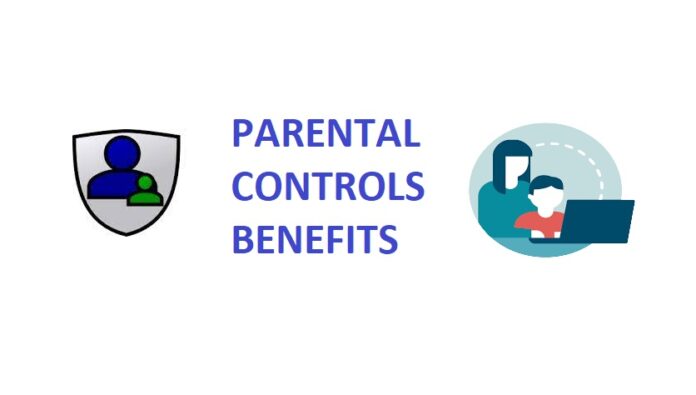Social media has become an integral part of modern society and is particularly prevalent among children and young people. These platforms have revolutionized the way people connect and communicate with one another, allowing users to share their thoughts, ideas, and experiences in real-time with a global audience.
It is important for parents and educators to be aware of these risks and to help children develop healthy habits and attitudes toward social media use. A recent ExpressVPN survey revealed that 76% of parents feel responsible for teaching their children how to stay safe online and on social media. With responsible use and proper guidance, social media can be a valuable tool for communication, education, and social connection among young people.
How Social Media Can Positively and Negatively Affect the Kids
Social media has emerged as a vital aspect of children’s lives, with positive and negative implications for their cognitive, physical, and social development.
Positive Effects of Social Media Among Kids
- Social media provides a medium for children to create and maintain friendships with peers from various backgrounds.
- Children can participate in educational activities on social media platforms.
- Social media allows children to explore new interests.
- It provides a virtual space for children to connect with individuals worldwide.
- Children can discover new cultures and exchange ideas through social media platforms.
Negative Impacts of Social Media Among Kids
- Excessive use of social media can adversely affect children’s overall well-being.
- Internet addiction resulting from social media usage can lead to poor academic performance, mental health issues, and compromised social life.
- Social media usage may contribute to social isolation, leading to a lack of social skills and feelings of loneliness.
- Social media exposes children to various internet threats, including cyberbullying, online predators, invasion of privacy, and inappropriate content.
- Cyberbullying can cause emotional distress, anxiety, and depression.
- Online predators may lure children into unsafe situations.
- Invasion of privacy and exposure to inappropriate content can lead to feelings of shame, guilt, and embarrassment.
- Exposure to inappropriate content and invasion of privacy may adversely affect children’s moral and ethical values.
ALSO READ: Privacy Risks of Home Robots : Things to Keep in Mind While Using Home Robots
Simple Ways to Teach and Safeguard the Kids from Online Threats

Although social media presents several advantages for children, it is essential to ensure they know the potential dangers and use it responsibly. Parents, teachers, and caregivers must be critical in promoting safe and healthy social media usage among children.
There are several ways in which parents, guardians, and caregivers can protect children from online threats:
- Monitor online activity: Parents should monitor their children’s online activity, including social media interactions and online searches. This will help identify any suspicious behavior, such as cyberbullying, grooming by predators, or exposure to inappropriate content.
- Use parental control software: Various parental control software can limit children’s access to certain websites, social media platforms, or apps. These tools can also block explicit content and provide detailed reports of their online activity.
- Limit screen time: Parents can limit the time children spend online. This will reduce the risk of excessive internet usage and addiction and promote healthy physical and mental development.
- Educate children about online safety: Parents should teach children about online safety, including safeguarding personal information, avoiding suspicious links, and reporting inappropriate behavior.
- Use privacy settings: Parents can help children set privacy settings on social media accounts to control who can see their posts and personal information.
- Encourage communication: Parents should create an environment where children feel comfortable sharing their online experiences, including any negative experiences. This will allow parents to provide guidance and support in navigating online challenges.
- Stay informed: Parents need to stay informed about the latest online threats and educate themselves on the potential risks their children may face. This will help parents take proactive measures to ensure their children’s safety.
Protecting children from online threats requires a multi-faceted approach that includes monitoring, parental control software, limiting screen time, educating children, using privacy settings, encouraging communication, and staying informed.
By implementing these strategies, parents can help ensure their children’s safety while allowing them to explore and enjoy the digital world.
Final Words
Social media can positively and negatively impact children’s physical, cognitive, and social development. While it can provide children with opportunities to develop and maintain friendships with peers from different backgrounds, engage in educational activities, and explore new interests, excessive use of social media can lead to internet addiction, social isolation, and exposure to various internet threats like cyberbullying, online predators, invasion of privacy, and inappropriate content.
Parents, teachers, and caregivers must be aware of the potential dangers of social media and take appropriate measures to protect children from online threats. This includes monitoring their online activity, setting parental controls, limiting their online time, and educating them about responsible social media use. By promoting safe and healthy social media use among children, we can help them reap the benefits of social media while minimizing its negative impacts on their overall well-being.
ALSO READ:
Who Called Me From This Phone Number? 10 Best Ways to Find Out




